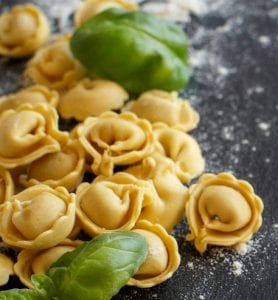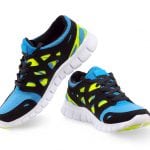Getting your nutrition and hydration right on marathon race day
We have invited Jo Scott-Dalgleish, a Registered Nutritional Therapist, to guest blog for us on the subject of nutrition and hydration for marathon race days.
Jo is a degree-qualified Nutritional Therapist who specialises in endurance sports such as long distance running, cycling, triathlons, open water swimming events and other endurance sporting challenges.
Jo says that planning what to eat and drink both before running a marathon and during the race itself, can make a real difference to your race day experience. Here’s what you need to know:
Your training diet
 Training for a marathon isn’t a licence to eat whatever you want, whenever you want! That might well lead to unwelcome weight gain, which will slow you down on race day. Even if you are one of those people who never gains weight, the combination of a poor quality diet and the demands of training might result in illness and lost training days.
Training for a marathon isn’t a licence to eat whatever you want, whenever you want! That might well lead to unwelcome weight gain, which will slow you down on race day. Even if you are one of those people who never gains weight, the combination of a poor quality diet and the demands of training might result in illness and lost training days.- So base your diet around mainly fresh, unprocessed foods – vegetables, fruit, wholegrains, meat, fish, eggs, dairy products, beans and lentils, nuts and seeds.
- Don’t forget to include some healthy fats like olive oil, avocado and oily fish to support your immune system, which may be compromised by heavy training, and help your joints recover from pounding the pavements.
- Eat more on your long run days and less on your rest days, particularly of starchy and sugary foods. Keeping alcohol to less than 14 units per week is also advisable.
Marathon week
 The latest studies suggest that it’s only necessary to increase your carbohydrate intake (carb-loading) in the two days before marathon day.
The latest studies suggest that it’s only necessary to increase your carbohydrate intake (carb-loading) in the two days before marathon day.- You’ll be resting on those days, so your calorie requirements will be lower than usual. Reduce your protein and fat intake and increase the proportion of your calories that comes from carbs, rather than just eating more food.
- Good carbs to choose are bread, pasta, potatoes, rice, oats, fruit, fruit juice and smoothies, dried fruit and starchy vegetables like sweet potato, butternut squash and beetroot.
- If you are prone to a dodgy stomach, avoid foods high in fibre such as beans and wholegrain bread, and spicy foods.
The night before
- Eat your evening meal a bit earlier than you normally would to ensure you digest it well before bed, and choose foods that you are familiar with.
- It’s a good idea to avoid high fat food choices: save the cheesy pizza for after the race. Pasta with tomato sauce and chicken might be a better choice.
- Drink around 1.5-2 litres of water during the day before your marathon to ensure you are fully hydrated. Perhaps sip on a sports drink for some extra carbs.
Race morning
 Have a breakfast that you have tried before your long training runs and consume mostly carbohydrate. Toast and honey or a bowl of porridge with some dried fruit would be good choices.
Have a breakfast that you have tried before your long training runs and consume mostly carbohydrate. Toast and honey or a bowl of porridge with some dried fruit would be good choices.- If you eat breakfast more than 3 hours before the start, have a banana or energy bar on the way to the race.
During the race
- You will need to consume some sugar during the race, or risk “hitting the wall” in the later stages. This is because your muscles can only store enough carbohydrate to provide energy for around 2-3 hours of running, depending on your pace. So taking on a sports drink or gel or some jelly beans becomes necessary.
- It is essential to practise your fuelling strategy in training, preferably using the same brand of sports nutrition products as will be available on the course. As a guide, have 30-60g of carbohydrate per hour after the first 45 minutes. Don’t leave fuelling until you start to run out of energy – that will be too late!
- You should also drink regularly, in line with your thirst. It’s a good idea to check the pre-race information pack for where aid stations with water and sports drink will be available on the course.
After the race
- Your chance for a treat! It’s a good idea to have some protein to help your muscles recover as well as some carbohydrate to replenish your energy. Drinking chocolate milk has been shown to be helpful.
To book a consultation with Jo click here or to find out more from her website click here.
Our running clinic specialists can give you a running assessment and advise on improving running performance, avoiding injury and recovering from problems.
Other running articles by our specialists
- Is sports massage a luxury or a necessity?
- Getting your nutrition and hydration right on marathon race day
- Running a marathon? Is sports massage a luxury or a necessity?
- Running a marathon? Read our Physio, Nic Pugh’s marathon story
- Voucher offer for marathon runners
- London Marathon – race day preparations
- 10 top tips for injury free running



